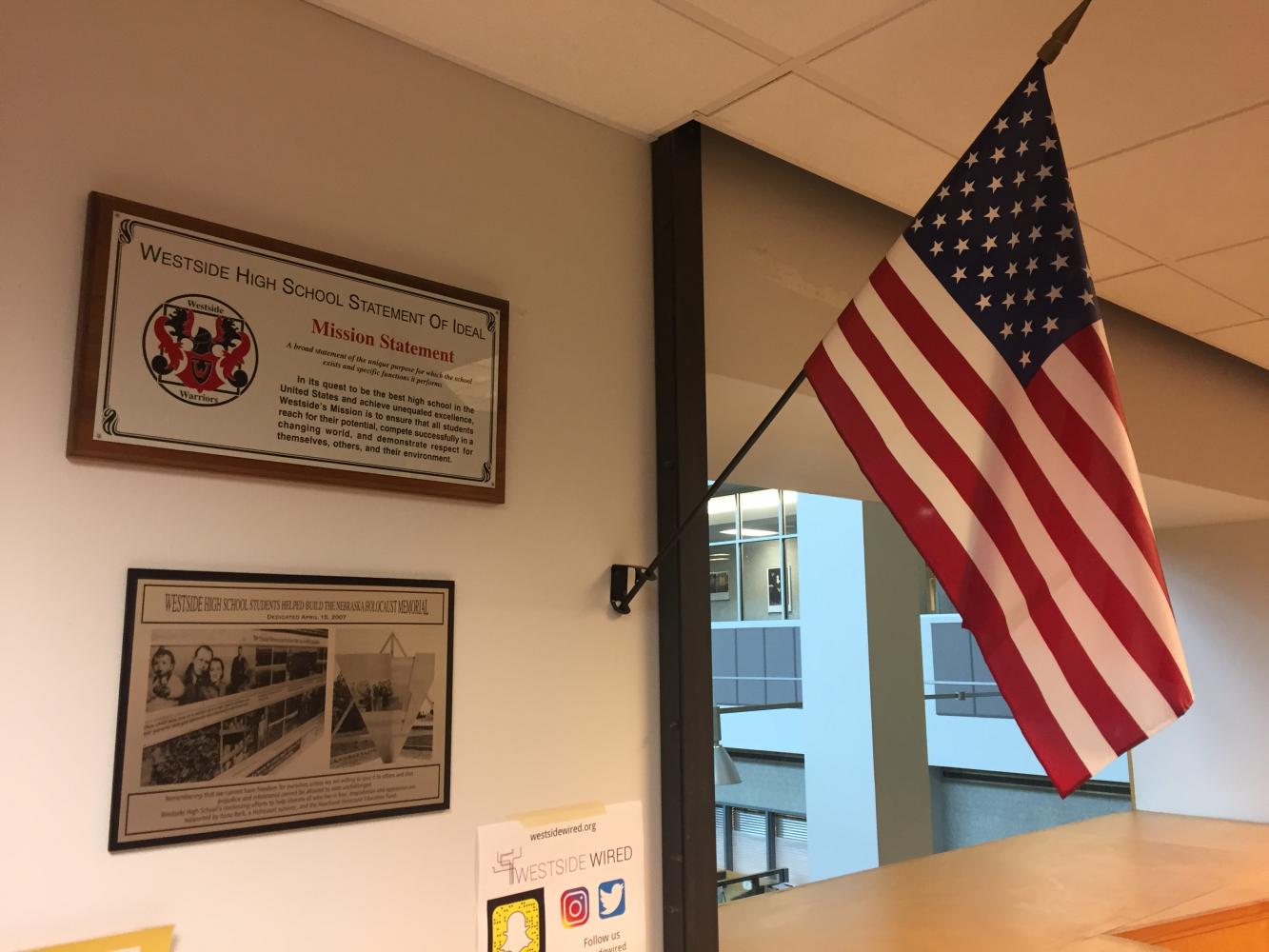Your donation will support the student journalists of Omaha Westside High School. Your contribution will allow us to purchase equipment and cover our annual website hosting costs.
Westside shares opinions on kneeling for the national anthem/pledge
September 25, 2017
At a 2016 preseason game, the San Francisco’s 49ers quarterback Colin Kaepernick took a knee during the national anthem.
“I am not looking for approval,” Kaepernick said in an interview with Kelley D. Evans for The Undefeated. “I have to stand up for people that are oppressed.”
Although this incident took place over a year ago, its legacy has continued to inspire many others. President Donald Trump has tweeted in the past 24 hours “Sports fans should never condone players that do not stand for their National Anthem or their Country” and a hashtag “#StandForOurAnthem”.
Students at Westside have conflicting viewpoints regarding the idea that people are or are not allowed to kneel during the national anthem and pledge of allegiance. Freshman Ben Radica does not think kneeling is acceptable.
“It’s their choice, but I’m against it personally,” Radica said. “I think men have fallen and died for that flag and it just doesn’t show the honor that they deserve.”
Freshman Alayshia White disagrees.
“They say justice for all, it is not justice for all, they’re just out lying,” White said. “So I think it’s okay for people to kneel for the pledge.”
According to the first amendment, individuals have the right peacefully protest. Social studies teacher Derek Fey sees kneeling as an expression of the rights given by this amendment.
“First amendment rights, that’s kinda the point of the first amendment, that you can nonviolently protest and it’s a pretty harmless way to protest,” Fey said. “I wouldn’t do it myself, but I see the idea behind it. It gets people talking, so it’s achieved its purpose.”
On the other hand, senior Makenna Freeman sees not standing as disrespectful.
“It’s our flag, there’s two different concepts between the president and our flag,” Freeman said. “I feel like people are putting our president and people serving for our country on the same spectrum and it’s not right.”
Senior Abby Tigani believes that choosing to kneel is a personal decision.
“Not everyone knows what other people have gone through or feel through family and friend connections,” Tigani said. “No one has the right to tell them they have to stand.”
At this point, the ruling of whether or not one can kneel during the national anthem or the pledge is protected by the first amendment.

